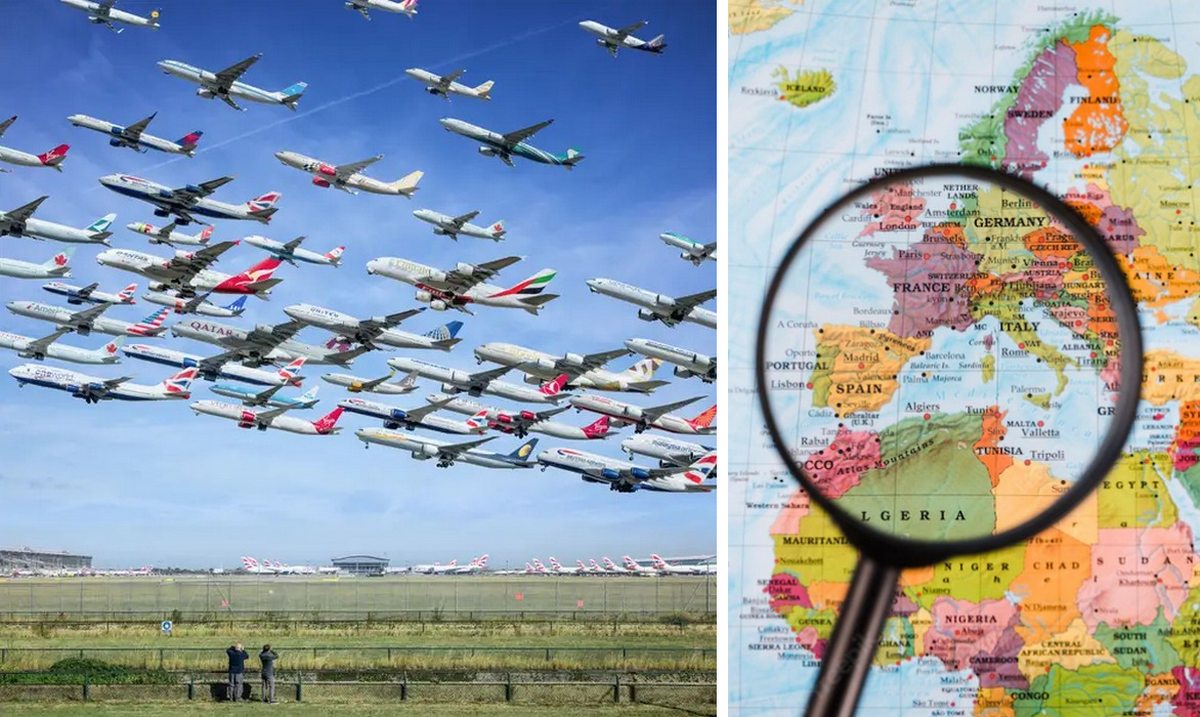The protracted coronavirus pandemic, which has gradually been replaced by geopolitical conflict, will no longer keep tourists from traveling and sitting at home: more than two-thirds of Europeans surveyed are ready to go on holiday, despite external circumstances and reduced holiday spending. Such stunning data on tours was presented by the European Tourism Commission (ETC) in its new report.
According to information, 77 percent of people planned to travel between April and September 2022, as neither the pandemic nor the war in Ukraine affected their plans for the current year. In a statement issued on Tuesday (April 12th), the EU Commission said that about 56 percent of Europeans planning a trip intend to visit another European country in the coming months. About 38 percent of those who want to travel plan to stay overnight from June to July, and another 32 percent plan to travel between August and September.
ETC data also showed that 31% of Europeans are ready to travel within their country. Respondents from Italy, Spain, Poland, the United Kingdom and Germany were most optimistic about the trip. In addition, data provided by the Commission showed that the purpose of the trips varied with age. Thus, the number of respondents aged 18-24 and baby boomers (tourists aged 54) ready to go on tour has risen from 69 percent to 83 percent – a record since the beginning of the pandemic.
In the coming months, the best option for 22% of Europeans is sun and beach holidays, while interest in urban recreation is about 15%, and to rest by the water or the coast – 15%.
Directions
The results of this survey also showed that Spain remained the main and favorite destination among Europeans traveling abroad. It was followed by Italy, France, Greece and Portugal.
Most Europeans who have already planned a trip intend to spend four to six nights on holiday (33%) or 7 to 9 nights (27%). And only 25% of them chose to travel for ten nights or more, mostly family travelers. On the other hand, for couples, they prefer express trips lasting up to 3 nights.
Costs
In addition, due to fears about inflation, most European tourists plan to spend 500-1500 euros (17’000-50’000 hryvnia), which means reduced vacation costs. Earlier, respondents were willing to spend more than 2,000 euros (66,000 hryvnias) on vacation.
“At the same time, although there is more certainty about when and where the next trip will be, only 25 percent of Europeans ready to travel have bought tickets, indicating a limited level of financial commitment. The European tourism sector should focus on vacationers at the last minute of this summer,” the statement said.
Anxiety factors
As anti-HIV restrictions have already been eased, about 27 percent of Europeans already have clear holiday plans, compared with only 16 percent in December 2021. “Our report shows that Europeans’ confidence in travel is growing now that COVID-19 is largely a fact of life. New uncertainties on the horizon, namely the ongoing conflict in Ukraine and rising cost of living, are creating problems for the tourism sector. However, ETC is pleased to see that, despite these uncertainties, the appetite for travel is still growing and the European tourism sector remains resilient,” said ETC President Luis Araujo.
Respondents also acknowledged that the coronavirus remains a cause for concern when traveling: 17% of those wishing to travel are concerned about quarantine measures, and another 15% – about possible changes in travel restrictions. In addition, Europeans with short-term travel plans have recognized the importance of strict medical protocols.
For those who care about a healthy lifestyle, we recommend reading: “Nutritionists have recognized black coffee as the best drink for weight loss.”

